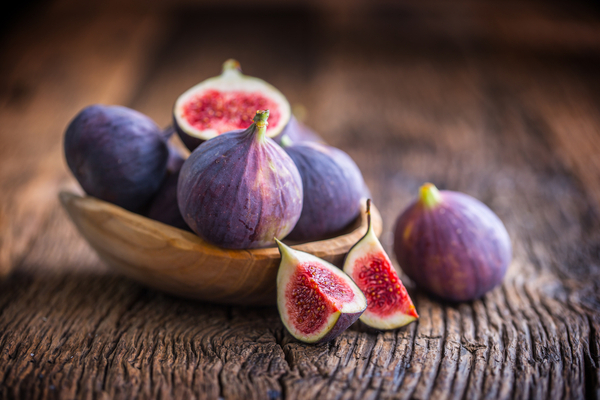The first week in November is National Fig Week! Dating back to the Stone Age, hundreds of varieties of figs have emerged. The most commonly found ones here in the US are Smyrna (Calimyrna) and Mission. Fresh figs are usually found in May through November. They are highly perishable and need to be used almost immediately upon purchase, but you can usually store them in the fridge for a couple of days. If you can’t find fresh figs many stores carry them canned (usually in a syrup but sometimes in water), dried, and candied .
Fun Facts About Figs:
Figs aren’t actually a fruit. Rather, they are the flower of the tree – their seeds (called achenes) are actually the fruit of the fig tree.
Fresh figs are a good source of potassium and fiber, and contain 74 calories per 100g.
Dried figs are a good source of potatssium but also are rich in magnesium, iron and copper. They contain 255 calories per 100g.
Figs can be used in place of prunes in recipes Like prunes, however, they can act as a laxative – so watch it, or you could be making a dash to the bathroom!
Despite being made up of over 50% sugar, figs are one of those truly versatile ingredients that can be used in both sweet and savory dishes – from appetizers to desserts – and even in cocktails. If you haven’t tried cooking with figs, now’s the time to dive in. They are simple to use and yield delicious results To prepare them, simply wash and trim the stem. You can eat them peeled or unpeeled. Dried figs can be eaten or used in recipes as is, or rehydrated before using.
Here are some fig recipes to get you started, courtesy the foodnetwork.com.
—
Photo Credit: Marian Weyo / Shutterstock.com
